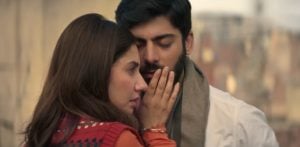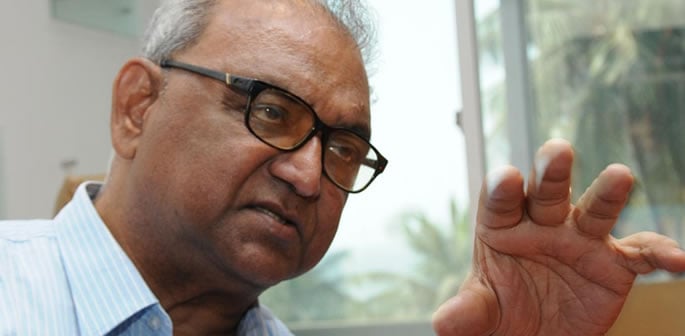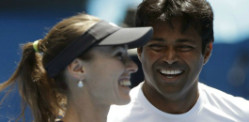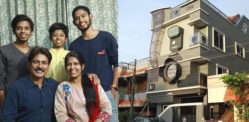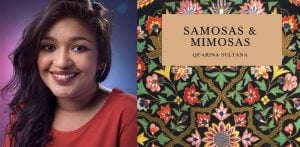he played a pivotal role in India’s bronze-medal finish
Dr Vece Paes passed away on August 14, 2025, at the age of 80.
He was a rare breed in Indian sport, a man who excelled at the highest level in hockey, shaped athletes from the sidelines, and contributed immensely as a player, administrator, and pioneer of sports medicine in the country.
An astute midfielder in the Indian hockey team of the late 1960s and early 1970s, he stood out for his vision, composure, and ability to knit together defence and attack.
Vece Paes’ sporting career reached its pinnacle at the Munich 1972 Olympics, where he helped India win a bronze medal, adding to the bronze he claimed at the inaugural Hockey World Cup in 1971, held in Barcelona.
Let’s explore his life and the legacy he leaves.
Early Life

Born on April 30, 1945, in Goa, Vece Paes did his schooling in Bengaluru, where he was a fine athlete, excelling in hockey.
In 1963, he moved to Kolkata to study medicine, following in the footsteps of his father and three siblings.
He attended St Xavier’s College and Presidency University before completing his MBBS at Nil Ratan Sircar Medical College and Hospital under the University of Calcutta.
Hockey Career

It was his time in Kolkata that prompted him to pursue hockey seriously.
He represented legacy clubs like East Bengal and Mohun Bagan, winning domestic titles such as the Beighton Cup and Calcutta League.
This success earned him a call-up to the Indian hockey team for the Hamburg International Cup in 1966, where he made his international debut while still a pre-medical student.
It marked the start of an international career spanning nearly a decade, during which he became one of the most dependable midfielders in the national setup.
Paes’ first major international success came at the 1971 World Cup in Barcelona, where he played a pivotal role in India’s bronze-medal finish in the tournament’s maiden edition.
The following year, he was central to India’s campaign at the Munich 1972 Olympics, which secured another bronze.
Known for his intelligent distribution, defensive discipline, and ability to read the game, Paes was the perfect link-man. His presence in midfield allowed India’s attackers more freedom, and his consistency earned the respect of teammates and opponents alike.
A multi-talented sportsman, he also played divisional cricket, football, and rugby.
Doctor & Administrator

Even while playing international hockey, Dr Vece Paes continued his medical studies and later specialised in sports medicine.
He worked with athletes across disciplines, helping them recover from injuries and prolong their careers.
Rugby became a lifelong passion. He represented the Calcutta Cricket and Football Club and later served as president of the Indian Rugby Football Union from 1996 to 2002, overseeing structural reforms aimed at growing the sport in India.
He also served as a medical consultant for the All India Tennis Association (AITA) and the All India Football Federation (AIFF) and was the team doctor for the Indian Davis Cup team.
Paes’ influence extended to cricket, where he pioneered anti-doping and age-verification systems as Sports Medicine Consultant to the Asian Cricket Council (ACC) between 2001 and 2009.
He later took charge of BCCI’s national anti-doping efforts.
Administrators such as Ratnakar Shetty credited him with transforming BCCI’s approach to athlete welfare.
A True Sporting Legacy

Vece Paes married Jennifer Paes, a former India women’s basketball captain and Olympian. Jennifer was also the great-granddaughter of Bengali poet Michael Madhusudan Dutt.
The couple raised three children, two daughters and one son. Their son, Leander Paes, became one of India’s most decorated tennis players.
Leander famously won the men’s singles bronze at the Atlanta 1996 Olympics, ending India’s 44-year wait for an individual Olympic medal, and claimed 18 Grand Slam doubles titles.
In fact, it was his father’s Olympic medal that inspired Leander.
Leander Paes previously said: “Ever since I was a little boy, I used to polish my father’s Olympic medal every Sunday after church, and I always wondered what that medal was all about.
“For some reason, that medal attracted me more than any other trophies my dad had.”
“And as I grew a little older, I realised what it meant to represent 1.3 billion people from a country like India. He’s been my example my whole life. He’s been my example to be the best I can be.”
The Paes household treated sport not just as a profession, but as a way of life.
Dr Vece Paes battled Parkinson’s in his later years and passed away on August 14, 2025, in Kolkata, aged 80.
For Indian sport, his legacy is twofold: the medals and memories he created as an athlete and the broader sporting culture he nurtured through leadership and medical expertise.
From the hockey fields of Munich to Kolkata’s rugby pitches and the tennis courts his son later conquered, Vece Paes will be remembered as the renaissance man of Indian sport.












